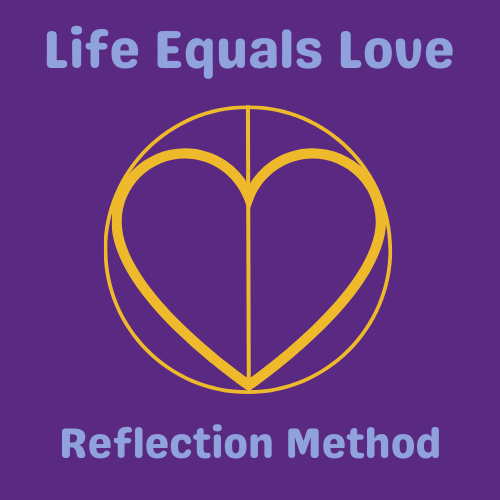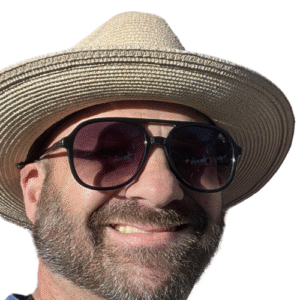This blog was submitted by Claire Eastham, a published author and expert on social anxiety and panic attacks
“You can’t do this. Everyone thinks you’re a freak. You’re stupid and weird, and you make other people uncomfortable.”
Back when my social anxiety was undiagnosed and out of control, this so-called ‘mantra’ played on loop in my mind, like a broken record.
Another favourite was:
“Why are you so awkward? Why can’t you just be normal like everyone else?”
Along with this inner critique. I experienced physical symptoms such as: sweating, tremors, heart palpitations, difficulty breathing, dry mouth, and blushing that was so bad I thought my cheeks would explode!
The Cause
If you pushed me to identify a root cause, I’d have to say school (Surprise surprise,) but I’d been labelled a ‘sensitive child’ as soon as I opened my eyes and thought “Shit, is this the world?”
Growing up, I dreaded family get-togethers and would experience stomach aches or feel sick on the drive over. Sometimes, even hiding and hoping the adults wouldn’t notice. The expectation to perform was too overwhelming.
Secondary school was the catalyst. I appreciate that children don’t mean to be arseholes, but they can be (myself included). Having not yet developed emotional intelligence or empathy, they hurl insults that are soon forgotten by them, yet remembered by the subject forever: “minging”, “freak”.
Furthermore, in the early naughties, teachers called emotional abuse ‘character building.’ They also believed the best way to tackle shyness was to call upon that child regularly to stand up and answer a question.
Great.
I got through this period of my life mainly by white knuckling it and slathering green colour corrector on my cheeks (to neutralise the blushing.) Yes, I did look like Elphaba from Wicked.


The Breakthrough Breakdown
In my twenties. With a Master’s degree in publishing and a job at one of the most prestigious publishing houses in London, I hoped I’d left all that ‘shy nonsense’ behind. Yet, within months, it was louder and stronger than ever.
At least at university, I had a lot of time to myself. Time to regulate or hide, even. In the corporate world, however, I had to be a fully functioning adult.
Going into any social situation felt like a battle. Even something as minor as the staff kitchen at work felt exposed.
What if I froze mid-sentence? What if I couldn’t think of anything interesting to say? What if a colleague notices I’m blushing? What if I say something stupid and people think I can’t do my job?
In meetings or at events, I struggled to be present in conversations. Instead, I’d analyse the person in front of me. Looking for signs of judgment. Was I boring them? Did they think I was weird?
Afterwards, I’d replay conversations in my head like a film. Critiquing my performance.
Not exactly a barrel of laughs, huh? And not surprising that I found even the thought of being around other humans exhausting.
At one point, I even avoided going to the loo for several hours, because I didn’t want to risk walking past someone’s desk and having to make small talk.
What the actual f**k? If that isn’t insanity…. Well then, it must be social anxiety.
DING DING DING. I was officially diagnosed after a very public nervous breakdown in a board meeting. One that involved a panic attack and me legging it out of the office like my knickers were on fire. (Long story, but it all worked out for the best.)
Freedom
After my diagnosis, I finally accepted that I wasn’t a ‘freak’ or a ‘loser.’ I have a mental health disorder. That understanding became my mission: to help others find the same acceptance and, more importantly, a way out of the constant battle.
Discovering MQ during my recovery was a gift. An opportunity to connect with other people trying to make a real difference concerning the treatment and care of mental illness. I can relate to the noble quest of research. I’ve since spent my life learning, managing, and teaching others the tools I used to reclaim my peace. I started a popular blog (which I have since restarted) and had two bestselling books published.
Yet, my greatest passion is working one-on-one. As of this year, I became a social anxiety and confidence coach.
I literally take people on the path I walked. The path where you can finally stop critiquing your own performance, leave the crippling fear behind, and, at the very least, feel profoundly comfortable in your own skin. My breakdown was my breakthrough, and now, my journey is a roadmap.
These days, when people ask if I still have social anxiety, I say, “Yeah, of course. It’s a part of me. However, it doesn’t have any more power over my life than a sneeze. It’s a temporary discomfort that I manage with compassion.”
Raise Money For Mental Health Research
Choose your own adventure and raise money for mental health research. You can do this by swimming, cycling, running, or conquering an obstacle course.
You can simply to donate to MQ and help support the future of mental health research. Supporting ground breaking research to help us better understand, effectively treat and ultimately one day even prevent serious mental illness.
Take a look at our latest insights. Explore new research and news from MQ, read personal stories, or watch and listen to our Open Mind podcast.
The post My Journey With Social Anxiety first appeared on MQ Mental Health Research.




